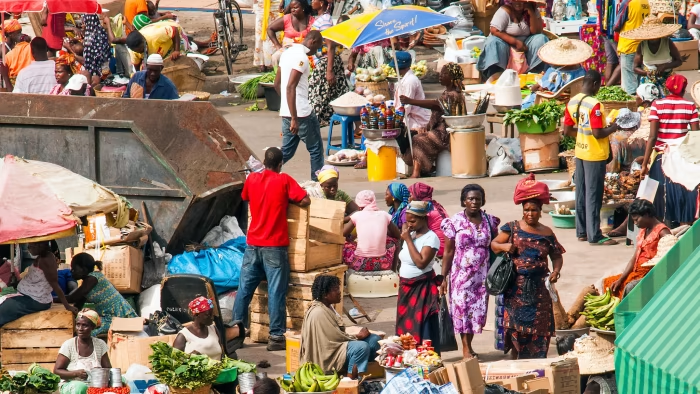Africa, with its vast arable land, diverse climate, and growing population, holds immense potential for agricultural development. Despite this potential, the continent’s agricultural sector faces significant challenges, particularly in marketing and trade. Improving agricultural marketing and trade in Africa is crucial for enhancing food security, increasing farmers’ incomes, and promoting economic growth.
Challenges Facing Agricultural Marketing and Trade in Africa
Several challenges hinder the growth of agricultural marketing and trade in Africa. These include:
- Limited Market Access: Many African farmers lack access to domestic and international markets due to inadequate infrastructure, such as roads, storage facilities, and communication networks.
- Insufficient Market Information: Farmers often lack timely and accurate market information, making it difficult for them to make informed decisions about planting, harvesting, and selling their produce.
- Poor Quality Control: Inadequate quality control measures lead to post-harvest losses and reduced competitiveness in domestic and international markets.
- Limited Value Addition: Most African countries export raw agricultural commodities, missing out on the value-added opportunities that come with processing and manufacturing.
- Inadequate Policy Frameworks: Weak policy frameworks and regulatory environments hinder the development of agricultural marketing and trade in many African countries.
Strategies for Improving Agricultural Marketing and Trade in Africa
To overcome these challenges, several strategies can be employed:
- Investing in Infrastructure: Governments and private sector investors should invest in improving infrastructure, such as roads, storage facilities, and communication networks, to enhance market access and reduce transportation costs.
- Market Information Systems: Establishing market information systems can provide farmers with timely and accurate market data, enabling them to make informed decisions about planting, harvesting, and selling their produce.
- Quality Control Measures: Implementing quality control measures, such as standardization, certification, and inspection, can help reduce post-harvest losses and improve the competitiveness of African agricultural products.
- Value Addition: Encouraging value addition through processing and manufacturing can increase the value of agricultural products and create jobs.
- Policy Reforms: Governments should implement policy reforms to create an enabling environment for agricultural marketing and trade, including reducing trade barriers, improving regulatory frameworks, and promoting private sector investment.
- Capacity Building: Building the capacity of farmers, traders, and other stakeholders through training and capacity-building programs can enhance their skills and knowledge in areas such as marketing, quality control, and trade facilitation.
- Regional Trade Agreements: Encouraging regional trade agreements can expand market access and promote intra-African trade in agricultural products.
Success Stories in Agricultural Marketing and Trade in Africa
Several African countries have made significant progress in improving agricultural marketing and trade. For example:
- Kenya’s Horticulture Sector: Kenya’s horticulture sector has experienced significant growth, driven by investments in infrastructure, quality control, and marketing.
- Ghana’s Cocoa Sector: Ghana’s cocoa sector has benefited from government initiatives to improve quality control, value addition, and market access.
- Rwanda’s Agricultural Export Growth: Rwanda’s agricultural exports have grown significantly, driven by government policies to promote value addition, quality control, and trade facilitation.
Conclusion
Improving agricultural marketing and trade in Africa requires a multi-faceted approach that addresses the challenges facing the sector. By investing in infrastructure, establishing market information systems, implementing quality control measures, promoting value addition, and implementing policy reforms, African countries can unlock their potential and promote economic growth, food security, and poverty reduction. As the continent continues to grow and develop, the importance of agricultural marketing and trade will only continue to increase, making it essential to prioritize these areas for future growth and development

